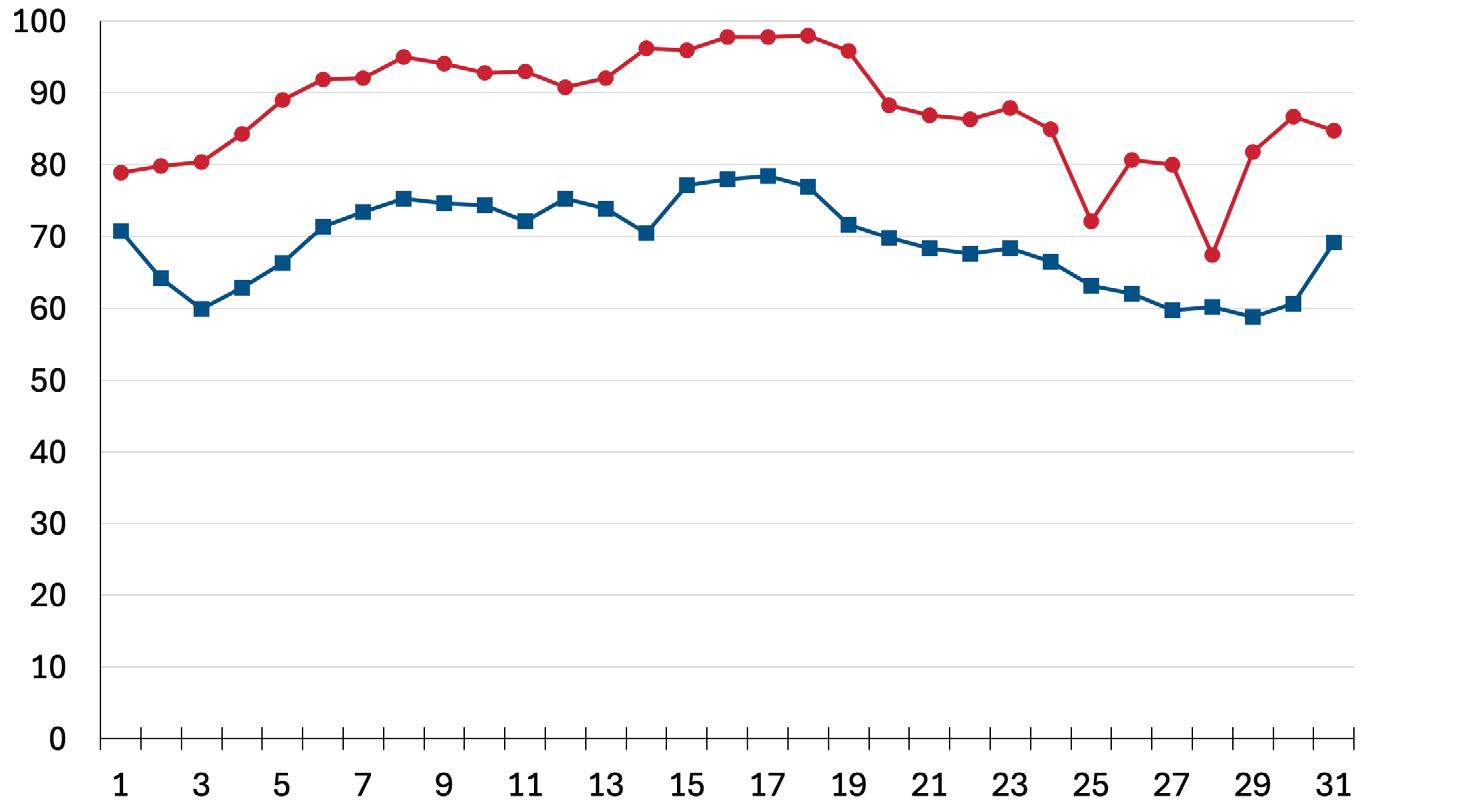THE MESSENGER
A Publication for North Arkansas Electric Cooperative Members




Across the U.S., electric cooperatives are supporting a new bipartisan bill that would streamline the Federal Emergency Management Agency and speed up delivery of crucial disaster relief funds to electric co-ops hit hard by hurricanes, wildfires, tornadoes and other natural disasters.

North Arkansas Electric Cooperative has contracted with Osmose to inspect poles in select areas of Baxter, Izard, Lawrence, Marion and Sharp counties. Osmose employees will drive trucks and wear apparel with the Osmose logo. Inspections allow NAEC to identify any damaged poles and either repair or replace them before they cause outages for members.
Work is expected to begin in October and continue for several months. Affected members will receive notice through a postcard as well as an email if an address is on file. For more information, please email info@naeci.com or call (870) 8953221 from 8 a.m. to 4:30 p.m. weekdays.

SET IT & FORGET IT — Enroll in automatic bank draft, and you’ll never have to worry about forgetting to pay the electric bill. You also won’t have to worry about updating your credit or debit card information on file when it expires or a card is compromised. Call (870) 895-3221 to enroll or for more information.
The Fixing Emergency Management for Americans (FEMA) Act of 2025 would keep in place FEMA’s essential Public Assistance program, which provides money to co-ops to restore power and rebuild their systems after natural disasters. Without those funds, rebuilding would take much longer and raise costs sharply for rural communities.
The National Rural Electric Cooperative Association, the national trade association representing more than 900 co-ops, and its member coops have been strong advocates for improving FEMA while keeping the agency intact. The FEMA Act would greatly reduce the amount of time it takes for co-ops to receive reimbursements from the agency.
Specifically, it would direct the FEMA administrator to reimburse co-ops for emergency work no later than 120 days after it submits a request. The president would first need to determine that at least 90% of estimated costs are eligible for reimbursement, said Will Mitchell, a NRECA legislative affairs director who lobbies Congress on FEMA issues.
For longer-term projects to rebuild or replace infrastructure, the bill would require FEMA to review within 90 days a co-op’s cost estimate of the work that needs to be done, Mitchell said. After that, the agency would have 30 days to disburse the
funds for the project.
“That would be a huge change in the timeline,” Mitchell said. “Right now, most co-ops are waiting years for reimbursement.”
Another major improvement is that co-ops would be allowed to build stronger, more resilient systems in the aftermath of disasters rather than being forced by the agency to build everything back exactly as it was before.
FEMA is a crucial partner for electric co-ops in efforts to restore power after disaster strikes. The legislation would remove FEMA from the Department of Homeland Security and return it to its former status as an independent agency that reports directly to the president.
The bill would make FEMA a stronger, more responsive agency and help strengthen rural resilience, protect taxpayer dollars and ensure essential services are restored as quickly as possible after a natural disaster.
The bill was approved by the House Transportation and Infrastructure Committee in September and awaits consideration by the full U.S. House of Representatives as of press time. If passed by the House, the legislation still would need to be approved by the Senate and signed into law by President Donald Trump.
Transportation and Infrastructure Committee Chair-
man Sam Graves, R-Mo., one of the lead sponsors of the bill, said “the American people need an emergency management system that works quickly and effectively, not one that makes disaster recovery more difficult.”
“This bill does more than any recent reforms to cut through the bureaucracy, streamline programs, provide flexibility, and return FEMA to its core purpose of empowering the states to lead and coordinating the federal response when it’s needed,” Graves said.
Rep. Greg Stanton of Arizona, the senior Democrat on the panel’s Economic Development, Public Buildings and Emergency Management Subcommittee, said the bill would strengthen FEMA’s mission “to help Americans in their darkest hour.”
“The agency isn’t perfect, and its job is getting harder as disasters grow more frequent and more severe,” said Stanton, who is co-sponsoring the bill. “But the solution is not to tear FEMA down—it’s to work across the aisle to build FEMA up. This bipartisan bill takes commonsense steps to streamline the agency and make sure communities get disaster assistance quickly, efficiently and fairly.”
As the FEMA Act of 2025 moves through the legislative process, NRECA and electric cooperative leaders will continue work to make it even better for co-ops and the local communities they serve.
— Erin Kelly/NRECA

As winter approaches, now is the time to inspect your home for air leaks around windows. Leaks reduce indoor comfort and lead to higher heating costs. If you can see daylight around the edges of a window frame or if a window rattles slightly when touched, air is likely leaking. Caulking and weatherstripping are simple, effective methods for sealing windows. These materials are available in a variety of compounds and forms, each designed for different types of surfaces. Choose the right product and apply it properly to reduce heat loss, improve comfort and lower energy bills.

Coolest